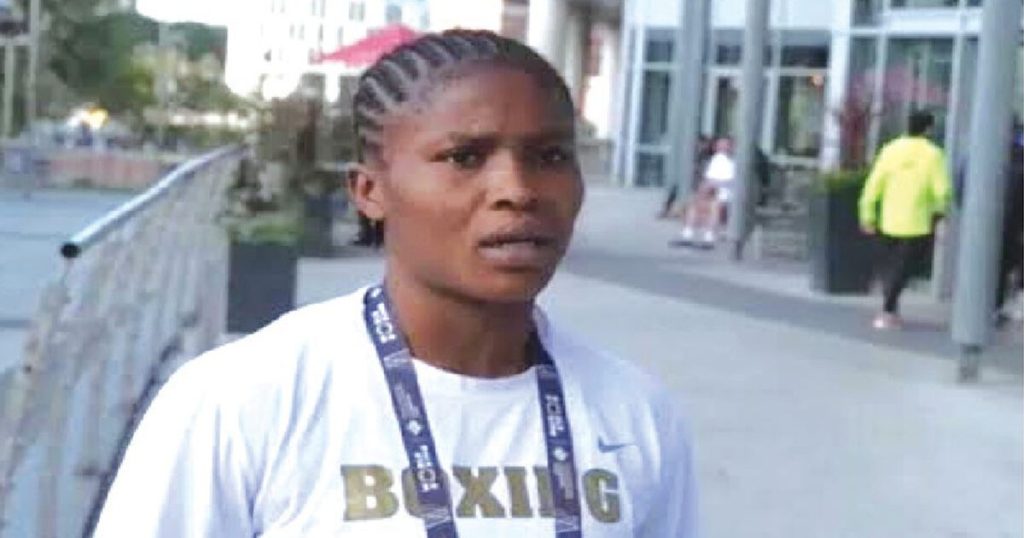The Nigerian boxing scene is embroiled in a controversy surrounding the exclusion of three female boxers from the World Boxing Championship held in Liverpool, sparking accusations of mismanagement, financial impropriety, and demands for compensation. The crux of the issue stems from the delayed results of mandatory gender verification tests, which prevented Zainab Adeshina (51kg), Mistura Idowu (48kg), and Blessing Oraekwe (75kg) from competing despite having travelled to the UK for the event. The Nigeria Boxing Federation (NBF) has formally requested compensation from World Boxing, citing the significant inconvenience and hardship caused to the athletes, who had anticipated competing for medals. The compensation request encompasses reimbursement for flight tickets, hotel accommodations, and all-expense-paid trips to the next World Boxing Championship in Delhi, India, effectively covering the lost opportunity and associated costs.
The debacle unfolded due to a combination of logistical mishaps and procedural delays. Initially scheduled to arrive on August 30th, the Nigerian contingent was informed they could arrive on September 1st and still complete the required chromosomal karyotype tests. However, this proved to be a critical miscalculation, as the test results were not processed in time for the boxers to participate. World Boxing regulations stipulate that all athletes over 18 must undergo this PCR genetic test to confirm their sex at birth and eligibility to compete, a requirement that ultimately sidelined the Nigerian athletes. Despite undertaking the tests immediately upon arrival in Leeds, UK, the results were not received until Thursday evening, after the deadline for participation had passed, effectively rendering their journey futile. The delay affected other nations as well, including France, the Philippines, Fiji, the Dominican Republic, and Cuba, highlighting a wider procedural challenge within the tournament’s organization.
The incident has ignited internal strife within the NBF, with interim president Azania Omo-Agege publicly criticizing the team’s preparation, selection process, and the overall handling of the situation. Omo-Agege’s concerns extend beyond the testing delays, encompassing broader issues of financial accountability and athlete oversight. He has questioned the expenditure of over N70 million (approximately $91,000 USD based on current exchange rates, though the exact conversion at the time of the event is not provided in the original text) reportedly approved for the tournament, demanding transparency and an investigation into how the funds were utilized. He further criticized the team’s travel without the national coach, Tony Konyegwachie, citing potential risks of athlete defection, referencing a previous incident at the Commonwealth Games where two boxers did not return to Nigeria.
The absence of the national coach is presented by Omo-Agege as a serious oversight, as he believes the coach’s presence would have provided an extra layer of control and prevented potential defections by holding the athletes’ passports. This point underscores a deeper concern within the NBF regarding athlete retention and the potential for athletes to seek opportunities abroad, particularly in countries where they are competing. The incident highlights the vulnerabilities faced by athletes from developing nations and the pressures that can lead them to seek asylum or better opportunities elsewhere.
Omo-Agege’s critique paints a picture of mismanagement and wasted resources, characterizing the entire competition as a costly mistake. He has called for accountability and has indicated his intention to formally request a National Assembly investigation into the matter. This highlights a potential lack of oversight and transparency within the NBF, raising concerns about the responsible allocation of public funds and the effectiveness of the organization’s leadership. The dispute underscores the challenges faced by Nigerian sports federations in securing adequate funding, managing resources effectively, and ensuring proper representation on the international stage.
The NBF’s pursuit of compensation has garnered the support of the National Sports Commission, indicating broader recognition of the injustice suffered by the excluded boxers. This backing strengthens the NBF’s position in its negotiations with World Boxing and underscores the collective responsibility of Nigerian sports authorities to protect the interests of their athletes. The exclusion of the three boxers, leaving only British-born Nigerian Patricia Mbata to represent the country in the women’s category, significantly diminished Nigeria’s potential for success at the championship. Mbata’s subsequent first-round loss further compounded the disappointment, highlighting the lost potential and the impact of the testing delay on the overall performance of the Nigerian team. The incident serves as a stark reminder of the importance of efficient administrative processes and adequate preparation in international sporting competitions. The fallout from this event could lead to significant changes within the NBF, potentially impacting its leadership and prompting a review of its operational procedures, financial management, and athlete support systems.














